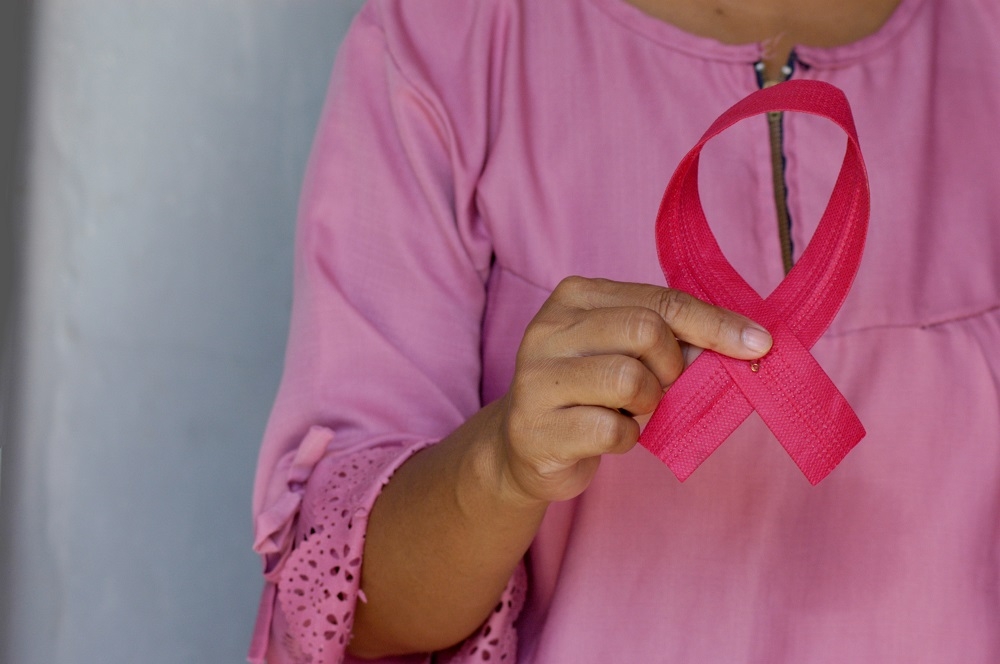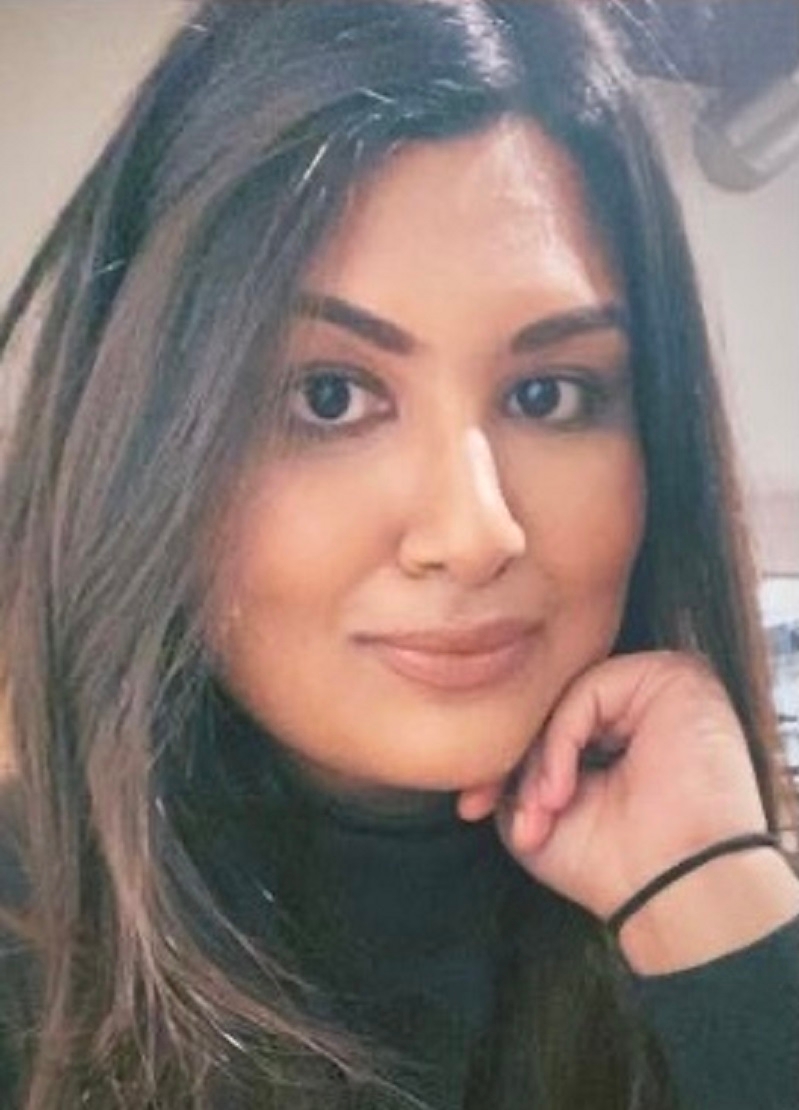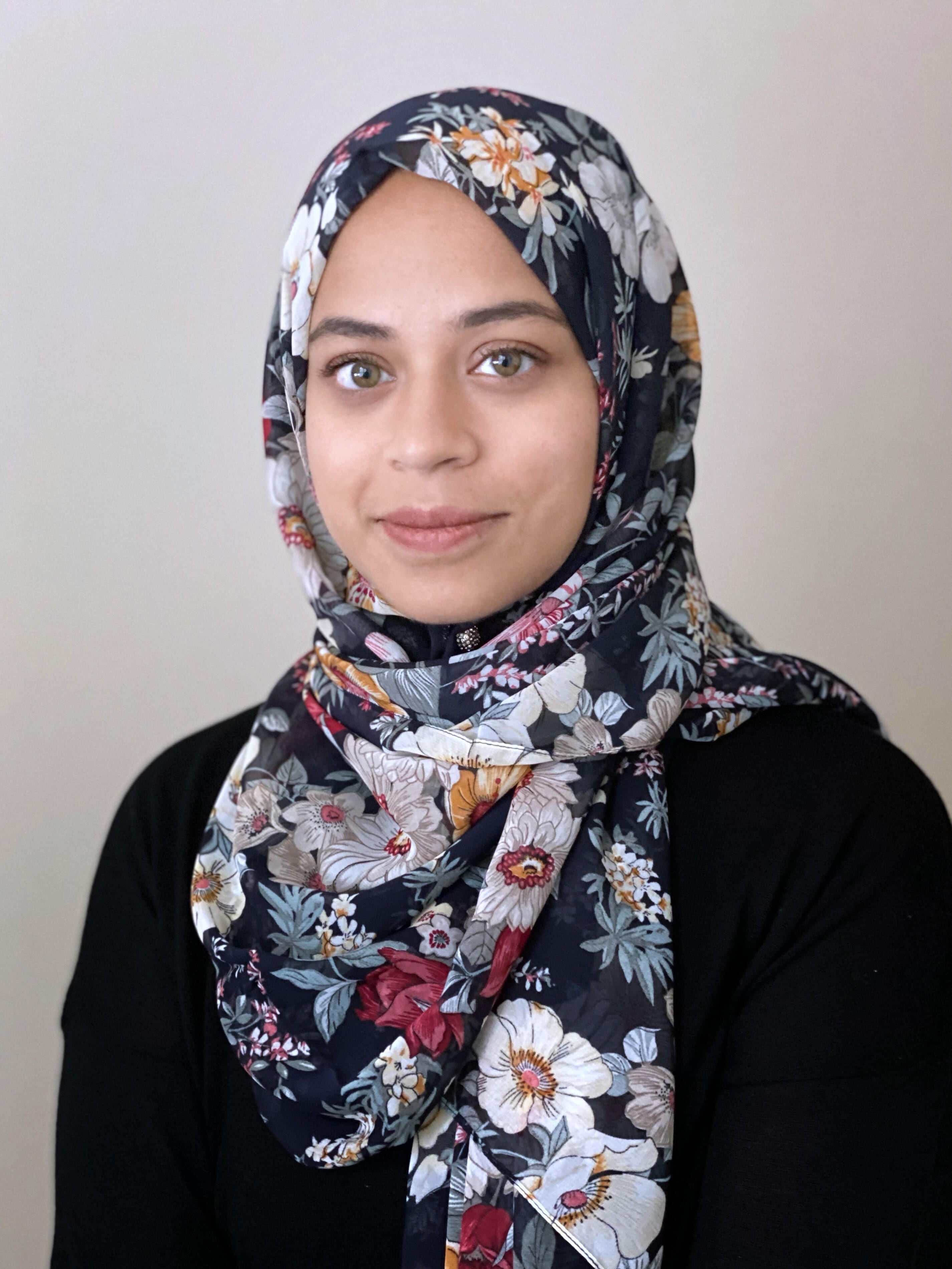12 Tips for Being a Better Advocate for Loved Ones Undergoing Breast Cancer Treatment
Lifestyle
|
Oct 11, 2021
|
10 MIN READ

Image source: Anna Shvets from Pexels
It’s Breast Cancer Awareness month, and here on the blog we’re featuring stories of early detection, prevention and how to be an advocate for your loved ones.
With many Muslims being immigrants or children of immigrants (58 percent according to the Pew Forum), navigating various systems – like healthcare and education – can require help from spouses, children, friends, neighbors or loved ones to translate, understand and interpret methods of care for their overall health. And especially when it comes to health issues that are infrequently discussed in Muslim communities – like breast cancer – advocating for oneself can be challenging.
According to Breastcancer.org, 1 in 8 women and 1 in 833 men in the United States get breast cancer in their lifetime.
Family history, one’s race/ethnicity, chemicals in food and commonly-used products are among various factors that can lead to breast cancer. Learning about the signs and symptoms is important to help yourself or your loved ones get a mammogram.
Indeed, learning how to advocate for a loved one who may not understand how the U.S. healthcare system works, the importance of early detection or risk factors around breast cancer is crucial, especially in immigrant communities. I spoke with Dr. Subha Hanif, a Physical Medicine and Rehabilitation resident at Mary Free Bed Rehab Hospital in Grand Rapids, and pharmacist Dr. Janan Sarwar in Kentucky to learn more about how to be an advocate for someone who is going through breast cancer or any illness.
Subha was a caregiver, translator and advocate for her terminally ill father. Her journey inspired her to create workshops for people with limited English proficiency to become more educated about healthcare, advocate for people like her father, and educate providers on how to serve with cultural competency and cultural humility. Through speaking with her and Janan and other research, we’ve compiled these 12 tips on how to become a better advocate on behalf of a friend or loved one:
1. Educate yourself on the illness: Breastcancer.org says one of the first signs of breast cancer is finding a lump in one’s breast or breasts, which can be either hard, painful and uneven, or soft, tender, and round. Other signs are redness, soreness, a nipple turning inward or discharge from the nipple.
Women are recommended to do self-exams every month, with annual physical exams at the doctor’s office. According to the American Cancer Society women who are average risk and are 40-44 years old have the option to get a mammogram yearly, 45-54 should get one each year, and 55 year or older can elect to get one every other year. Read more about risk factors here.

Image source: Angiola Harry on Unsplash
According to BreastCancer.org, if a person has a first degree family member who had breast cancer the risk is doubled and women can request or may be recommended by a provider to get a mammogram done 10 years before their relative was diagnosed, or by the age of 40.
Advocates can encourage loved ones to maintain a healthy lifestyle like no smoking, maintaining a healthy weight, and eating nutritious foods to keep risks low.
Other websites with information about breast cancer are:
- American Cancer Society https://www.cancer.org/
- CDC https://www.cdc.gov/cancer/breast/index.htm
- National Breast Cancer Foundation, Inc. https://www.nationalbreastcancer.org/
- Macmillan Cancer Support guide to cancer resources in other languages
2. Get your loved ones screened early: Janan says one of the best defenses of early treatment is getting screened early. She says a majority of breast cancer patients have no risk factors. Janan says treatment is available, usually in the earlier stages.
“Depending on factors such as the stage, tumor subtype, age, health status, genetics and preference, your healthcare provider will recommend a therapeutic plan,” Janan says.
This Detroit News article offers tips on how to speak to your loved ones about getting screened – from talking to them about getting their mammograms to talking over fears and concerns.
She says one of the options may be to enroll in a clinical trial. “There is a lack of diversity in clinical trial participation and being involved may not only help the patient, but this can future patients and could serve as a form of sadaqa jariya (continuous charity which helps others).”
Here are some more tips from Janan on how to convince your family member or friend to get screened:
- Reflect on why you are hesitant to be screened.
- Early screening allows early detection of breast cancer. Early detection can reduce the risk of death and increase chances of treatment or cure.
- Breast cancer screening is way less invasive and painful than breast cancer treatment.
- New and better treatments have entered the market.
- You may “feel fine,” but a mammography can determine what is going on beneath the surface.
3. Attend or create cultural competency education workshops (if possible): In 2012 Subha hosted a series of healthcare workshops through her organization, Bangladeshi Americans for Social Empowerment, in response to knowing there were several healthcare resources – like free health clinics that served under-insured or uninsured individuals and other preventive care initiatives – and were underutilized through the Bangladeshi community in metro Detroit. She realized many people didn’t know about these services due to the language barrier, and she wanted to change that.
Subha’s workshops were created for women to learn about breast cancer awareness, cervical cancer, diabetes and other topics. They were taught by female doctors and with women-only classes with female translators to create a safe space for women.
“These kinds of workshops are super important, not only for the patient – and of course the patient advocate/family member/translator – to come and be able to gather all of this information ... but it's also important for these kinds of workshops to exist for the providers to understand their diverse population and how to balance being culturally competent,” says Subha. As an advocate, consider creating or hosting your own cultural competency workshops with local healthcare providers.
4. Establish rapport with physicians and their team: Subha says one way to advocate for a family member or friend is to call the doctor’s office ahead of time to speak to a front desk person, a nurse or physician’s assistant (PA) to relay your role to the doctor and team; discuss your role with the physician on the first day. She says oftentimes the translator is also the caregiver, advocate and family member, and it is important to set the tone with the doctor and their team.
“[Relay to the physician and their team that] I am the caregiver, [and] my family member does not speak English. They are very very apprehensive and scared about their diagnosis, I would like to come in with them and help them out. I want to make sure that I do justice to my role and I want to make sure that the physician is aware,” she says.

Dr. Subha Hanif
5. Have tough conversations before appointments: One way to cut down on time in the doctor’s office is to have tough conversations at home before appointments, says Subha, such as finding out preferences of the patient, understanding and noting their questions or concerns and discussing treatment options or limitations to relay back to the doctor.
6. Speak up about your needs: Janan says it’s important to remember to ask for what your loved one needs. For example, if you’re aware of upcoming changes to their lifestyle (such as fasting during Ramadan) or eating routines, let your providers know about those changes so they can adjust the care.
“Patients and patient advocates should feel empowered to mention faith-based practices to their healthcare providers. Some dietary changes during holidays and religious or cultural observations can seriously impact a patient’s health if not monitored closely,” says Janan.
She says certain foods, medicines, herbal and over-the-counter medicine could alter metabolism and negatively impact the patient’s health, so make sure you know the dietary lifestyle and supplements your family member or friend are taking so that you can relay it to the medical team.
7. Seek modest alternatives: Janan says one of the reasons people are not going in for exams is due to modesty. She says patients and advocates can ask for female staff to conduct exams.
“It is imperative that the Muslim community follow recommended guidelines for annual breast exams and mammograms. Lower rates of performing these tests have been observed among ethnic minorities, and it is often due to concerns over modesty.
"Patients can ask for female-only healthcare providers if there is discomfort related to screening. The mammogram itself is not painful (although it may feel uncomfortable) and you can ask for privacy for only one female technician to be present,” Janan says.
8. Advocate for the patient’s bill of rights: Subha says many ethnic communities trust the physician for prescribing the best treatment; however, it’s important for patients to speak up about their needs - if needed - through their translator.
“A lot of our community members think, ‘Oh but that's the doctor and the white coat, they know everything they're smart,’” says Subha, "sometimes forgetting that doctors are human too and might misstep in providing information that’s vital to the process."
Patients have the right to receive safe healthcare, receive full information about diagnosis and treatment, as well as be transferred to another facility if needed (depending on reasonable requests). Here is a sample by the U.S. Department of Health & Human Services. Services may differ from state to state and one hospital to the other.
Subha says if the patient feels like they did not receive adequate care, they can work with the hospital’s Patient Advocacy Group to file a complaint or request services. As an advocate, you should help your family member or friend articulate if they feel their care is substandard.
“You have a right to be the right to respectfully say, ‘I feel like I'm not being heard. As a family member, I feel like I'm not getting all the information … I need, and I want my questions answered’... and that institution should be providing you with more answers.” Advocates should remind their loved ones of this.

Dr. Janan Sarwar
9. Trust providers: Janan says usually the providers and pharmacists know how illnesses work and what treatments might aid the process. “Trust the knowledge of providers, particularly pharmacists when it comes to interactions. Pharmacists are trained to know drug-drug, drug-nutrient, and drug-disease interactions.”
Advocates can ask follow-up questions to the pharmacist to build trust and a relationship to help serve the patient. Advocates can also help log information to relay back to the pharmacist to adjust medications as needed, or identify what isn't working.
10. Inform providers of any life or health changes: That also means report any changes or what isn’t working to the providers to work on a team approach for getting the best solutions for your loved one, says Janan.
“If [your family member or friend is] changing [their] diet or performing religious fasts, ask your pharmacist or any healthcare provider if there are any concerns for the patient. Some medications are best taken with food, so the provider may recommend altering the timing of the dose or stop it completely," she says.
11. Practice cultural competency vs. cultural humility: This goes for advocates and healthcare providers, who can also be advocates for their patients by understanding how a person sees themselves, their beliefs and customs in their social environments as opposed to perpetuating cultural humility (assuming things about them). According to this article in SAGE Journal, reflecting on the imbalances of healthcare, power, and being committed to self-reflection to do better to serve communities are things advocates and healthcare providers should be aware of.
This fine line involves trying to understand another person’s culture by listening to them in their own words while recognizing no two people have the same experience, even if from the same culture (and knowing you cannot fully understand someone else’s culture) – to offer the best forms of treatment.
This goes for advocates as well as healthcare providers. Staying open to learning about people and how their social environments impact them will help diagnose and treat patients better and make you a better advocate.
“To be culturally competent doesn't mean you're like the authority in the values or the beliefs of any culture, it just means that you're going to have a deeper respect for understanding that there are differences and be humble about it,” Subha says.
Subha talks more about her experiences with these terms here.
12. Create space for the patient to be seen and heard: Subha says it’s important for providers to look and speak to the person who is impacted by the illness, so patients can feel seen. She says it’s important for providers to take their time to explain the diagnosis and treatment. The translator or family advocate can also establish that they want the provider to speak directly to the patient, and that their role is that of a supporter.
She says she was a caregiver and translator for her father who had a terminal illness, and she understands how difficult it is for patients when doctors speak to their advocate instead of them, even though there are time constraints on doctors that sometimes cause them to get the information quickly to the patient via the translator.
“The word cancer with a capital C is very scary to anyone,” says Subha. “And this is the time [when patients] need someone to hold their hands and to be there with them. Be soft-spoken, give them ample time.” And most importantly, be respectful.
Subha and Janan say patient advocates are an integral part of a patient’s treatment, and that becoming educated about breast cancer, asking questions, and speaking up for a patient’s needs are great ways to support your loved one. Providers can also become patient advocates by listening, being respectful, taking their time with patients and their advocates, as well as practicing cultural competency and humility. The tag-team approach to healthcare creates a more holistic approach to treatment.
Additional breast cancer resources in various languages:
Do you have a loved one with breast cancer? How are you helping them? Share your tips in the comments below.
Subscribe to be the first to know about new product releases, styling ideas and more.
What products are you interested in?

